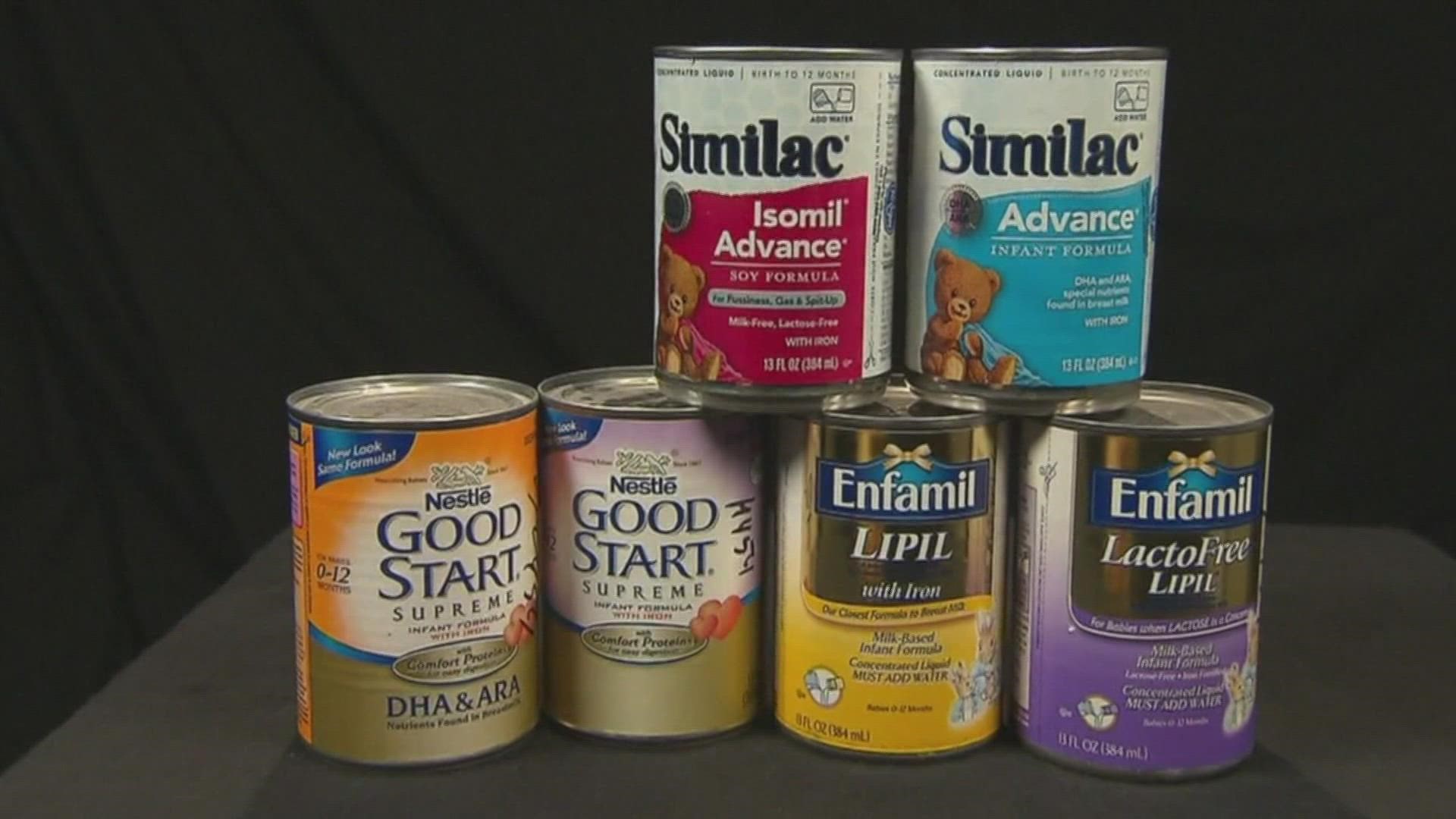SEATTLE — As families in Washington state and across the country battle another week of baby formula shortages, the Federal Trade Commission (FTC) is warning new parents of the potential threat of online scammers.
Scammers trying to take advantage of desperate parents will post and message consumers online, usually through social media, offering baby formula for high prices that often never arrive, according to the FTC consumer warning.
The Better Business Bureau (BBB) said scammers also pay attention to the news and know what's going on. They will set up fake websites and profiles, often with images of well-known brands, to make them look more official.
The formula shortage has been ongoing since the COVID-19 pandemic started, but has gotten worse in recent weeks due to labor shortages and a major label recall in Michigan. The shortage has left new parents desperate enough to send money through apps like Venmo or Paypal, which experts advise not doing.
In addition, the FTC offers other ways to protect yourself from online scamming.
The FTC said to research the company by doing an online search with terms like "scam" or "review." Using a credit card is also the best bet to get your money back when disputing the charge if it is a scam. The FTC advised parents to turn to local resources first like a physician to see if they have stock or samples on hand.
The BBB also shared the following tips to avoid scams and things to look for to detect potential online scam purchases:
- Positive reviews on the website that have been copied from honest sites or created by scammers. Be aware, some review websites claim to be independent but are funded by scammers. Check BBB.org.
- No indication of a brick-and-mortar address or the address shows on a Google map as a parking lot, residence, or unrelated business than what is listed on the website.
- Misspellings, grammatical errors, or other descriptive language that is inconsistent with the product.
- The seller advertises on a social media site and is communicative until the payment is made. Once the payment clears, they are unreachable.
- Visit BBB.org to check a business’s rating and BBB accreditation status. Impostors have been known to copy the BBB seal. If it is real, clicking on the seal will lead to the company’s BBB profile on BBB.org - check the domain of the URL.
- Think before you click. Be especially cautious about email solicitations and online ads on social media sites.
The FTC is asking anyone who thinks they have been scammed to file a complaint in order to stop scammers and protect other new parents. A complaint can also be filed with the BBB by clicking here.

